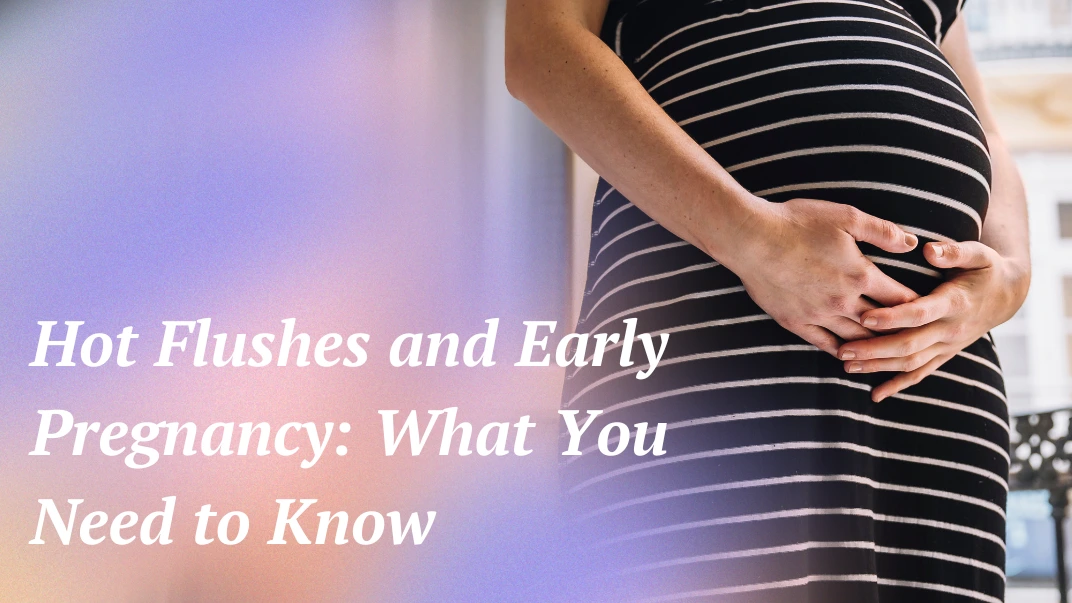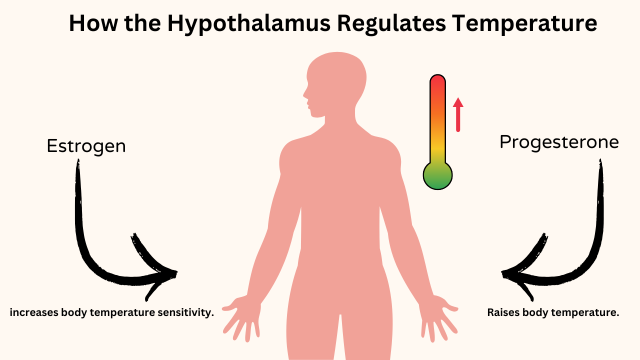January 4, 2025

Hot flushes in early pregnancy is usually caused by hormonal changes in your body, but they are usually more common during the second and third trimesters. These episodes generally last just a few minutes, and there are several quick ways to cool down, especially if they occur at night. Here are some helpful tips:
Hot flashes, sometimes referred to as warm flashes, are a common occurrence during pregnancy. They involve sudden, intense waves of heat that are often accompanied by sweating and flushed skin. While these flashes can occur at any stage of pregnancy, they tend to be more frequent during the first and third trimesters. The primary cause of hot flashes is hormonal changes, particularly fluctuations in estrogen and progesterone, which are crucial for regulating body temperature. In addition to the heat, you may also experience symptoms such as sweating, a rapid heartbeat, dizziness, nausea, headaches, anxiety, and even a feeling of weakness.
Many women begin experiencing hot flashes in early pregnancy. These can begin as soon as the first trimester, often due to the hormonal shifts that start shortly after conception. As the body increases the production of progesterone, the body’s thermostat (the hypothalamus) becomes more sensitive, leading to an increase in body temperature. Some women may experience hot flashes in early pregnancy as one of the first signs of pregnancy, along with other symptoms like fatigue and morning sickness.

The onset of pregnancy is usually caused by hormonal changes in your body. As your body adjusts to pregnancy, increased progesterone levels can make your body’s thermostat (hypothalamus) more sensitive, raising body temperature. That’s why many women report hot flashes during pregnancy at the beginning.
You may also notice increased sweating and redness of the skin when bright lights are involved. These symptoms are usually most pronounced in the early stages of pregnancy, but can also continue throughout pregnancy, especially as the body adjusts to the growing baby and blood levels rise.
As pregnancy progresses, the body undergoes significant changes, especially during the third trimester. A growing uterus and dilated uterus can put additional stress on your body, which can lead to frequent and severe hot flashes. Hot flashes during pregnancy are most pronounced during the third trimester due to increased blood flow and adaptation to physiological changes.
Although the discomfort of a hot bath may seem intense, it is generally a normal part of the pregnancy experience. Staying hydrated, managing stress, and staying cool during these times is important. If you’re wondering, is hot flashes a sign of pregnancy, remember that it’s usually just a sign that your body is adjusting to a new hormonal environment.
Although PMS hot flashes and pregnancy hot flashes feel the same, they are caused by different hormonal changes. Hot flashes during PMS are usually caused by changes in estrogen and progesterone levels as the body prepares for menstruation. In contrast, hot water baths during pregnancy are much more intense because the body adapts to the increased levels of progesterone and estrogen needed to support pregnancy.
Hot flashes are a common experience in pregnant women, affecting approximately 35% of pregnant individuals. These sudden sensations of intense heat, often accompanied by sweating and flushed skin, are primarily due to hormonal fluctuations, particularly increased levels of estrogen and progesterone.
While hot flashes are generally a normal part of pregnancy, there are some symptoms that can indicate a more serious problem. Here are five warning signs to look out for during pregnancy:
It’s important to contact your health care provider immediately if you notice any of these warning signs, as they could indicate gestational hypertension, pre-eclampsia, or other complications that need to be treated.
Dealing with hot flushes during pregnancy can be challenging, but there are several options that can help ease the discomfort. Here are some tips:
Interestingly, the hot flushes many women experience during pregnancy share similarities with those of perimenopause and menopause. In both cases, hormonal fluctuations — primarily involving estrogen and progesterone — play a central role.
During perimenopause, declining estrogen levels can cause intense, sudden feelings of warmth, often accompanied by sweating and redness. While pregnancy hot flushes are milder, they stem from the same hormonal origins. This connection offers insight into how our bodies respond to changing hormone levels throughout life.
Hot flashes are usually not a reason to worry and often don’t necessitate a trip to your healthcare provider. However, if you have a fever while pregnant, it’s crucial to consult a medical professional. Fevers can pose potential health risks for the developing fetus and should be assessed quickly to ensure the well-being of both mother and baby.
https://www.verywellhealth.com/are-hot-flashes-a-sign-of-pregnancy-5219710